News
Explore our recent blogs
Step into our academic blog listing, an informal avenue that opens doors to dynamic conversations and collaboration in the realm of animal movement. Through this virtual platform, we aim to engage the public and colleagues alike, offering a unique perspective that transcends disciplinary boundaries.
Our blog seeks to break down barriers and foster connections between various disciplines. We highlight the interconnectedness of fields such as biology, ecology, geography, physics, statistics, data science, and more, all in the context of understanding animal movement. By approaching this subject from different angles, we strive to unravel its complexities and shed light on its multifaceted nature.
Congratulations to Simon Bonner!
July 2024 | Scout Thompson |
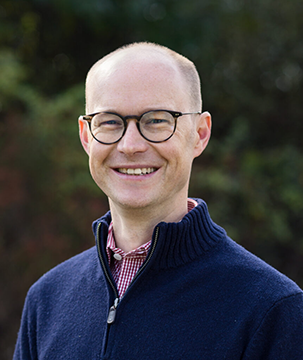
Congratulations to Simon Bonner for being awarded the Faculty of Science Distinguished Reserach Professorship for 2024-2025! This professorship, funded by the Canada Research Chairs Program, aims to allow faculty members to take a break from the classroom in order to pursue a large scale project full-time.
Simon plans to establish a formal organization for statistical ecologists within Canada to better promote their research, provide supports for funding, and to establish strong ties between its members and to the larger research community.
Simon anticipates that this will help attract graduate students and post-doctoral fellows to the field, bridge gaps between academia and government/industry, and most importantly, drive forward new innovations through the power of scientific collaboration. Way to go, Simon!
Fish on the move: Meet the migratory fishes of Medway Creek
June 2024 | Scout Thompson |
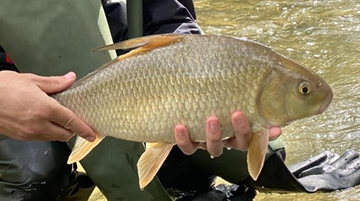
In the next installment of our tales from the field, dive on in to Medway creek with Kevin Adeli as he updates us on the work being done by the Morbey, Neff, and Hain labs on our local migratory fish!
Sounding the alarm on climate change! What the birds are telling us:
May 2024 | Scout Thompson |
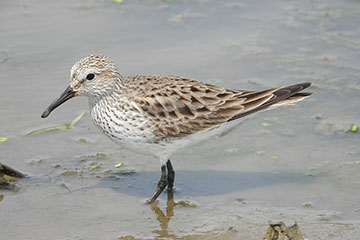
In the midst of December exams, some of you may remember the alarming sight of five goslings waddling outside University Hospital. As fellow biologists, I am sure I don't need to explain how absolutely harrowing the implications of this are for the future of the environment.
Today's news comes with a mix of the bad, the even worse, and a little glimmer of hope: read more about the struggles faced by our feathered-friends, and what we at Western are trying to do about it here in this story by Kurt Kleiner in Western Alumni Magazine
Study reveals how Canadian songbirds change their bodies during migration
May 2024 | Scout Thompson |
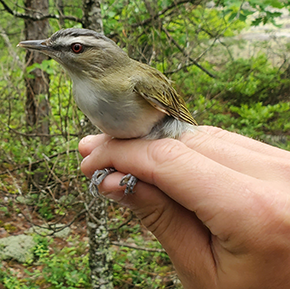
Researchers at Western University’s Advanced Facility for Avian Research explore how much songbirds’ bodies can change to fly higher when migrating.
Postdoctoral researcher Catie Ivy's latest study investigated the fascinating physiological changes that migratory birds undergo to prepare themselves for their bi-yearly perilous journeys.
Read the full-story from Canadian Geographic here
Stories from the field: Tim Hain
April 2024 | Scout Thompson |
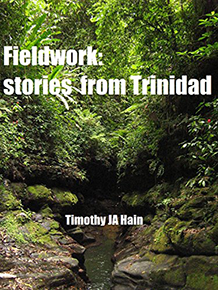
During my PhD, I went to Trinidad to do research on guppies. In that country, guppies are everywhere, from pristine mountain streams to roadside gutters, but some populations of guppies attract more interest than other populations. We would go to some rivers that were not easy to get to, and some of those rivers would have very few fish because of overharvesting by scientists. At these rivers, we would have to spend a lot of time with our nets just to get a few fish.
We were fortunate to have a well-connected collaborator, Indar Ramnarine - a professor at the University of the West Indies, who enlisted a technician (Raj Mahabir) from the department to help us get to all our sites. read more
Dr David Sherry AFAR Graduate Award
MARCH 2024 | Scout Thompson |

In honour of the late Dr. David Sherry, distinguished University Professor Emeritus in the Departments of Psychology and Biology, a new award offered to full-time graduate students conducting AFAR afiliated research has been established. The award will be given based on financial need, and preference will be given to those involved in avian research. The award is valued at one annual payment of $1000.
Applications will include a one-page statement that addresses the selection criteria for the award and a current CV. These should be submitted as a single PDF attachment by email to smacdou2@uwo.ca
Researchers on the news!
FEBRUARY 2024 | Scout Thompson |
Check out our center's very own Chris Guglielmo on this short CBC news segment covering the latest report from the UN concerning the state of the world's migratory species

